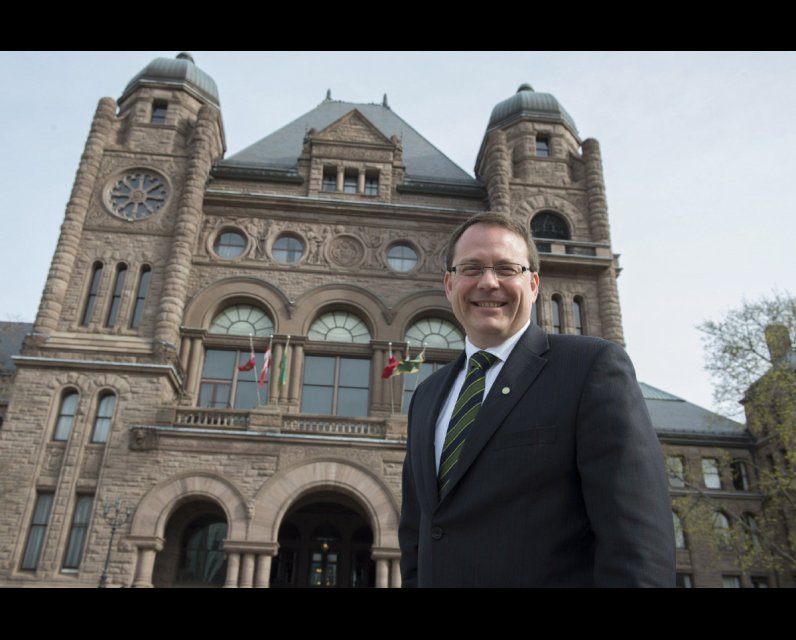Dear Hon. Premier Wynne:
People want the corrupting influence of big money out of politics. Bill 201 will still not prevent wealthy insiders from buying access to power without additional changes.
You have a decision to make: Do you want to take half measures or do you what to democratize political fundraising in Ontario? Do you want to continue the practice of wealthy insiders buying access to power and cabinet ministers eager to sell it or do you want to end “pay-to-play” politics in Ontario?
Your party’s tabled amendments take us half way down the road to reform. Why not go all the way?
The GPO strongly encourages your party, with its majority on the committee considering amendments to Bill 201 this week, to make the following five changes:
1. Lower donation limits to under $1,000.
Campaign finance expert Dr. Robert MacDermid recommends a hard annual cap of $1,550 per donor to all parties and constituency associations. Democracy Watch recommends lowering donation limits to Quebec’s limit of $100.
Your proposed amendments allow rich donors to give $3,600 to parties, candidates and their associations during an election year. Your proposed donation limits are higher than what the average Ontarian can afford. Wealthy corporations, unions and other organizations can exploit these high donation limits to buy additional access to power by funneling large donations through their executives and members of their family.
The only way to stop the influence of big money on politics is to lower donation limits. The GPO recommends $300.
This donation limit should apply to candidates themselves and to leadership candidates.
2. Lower spending limits to $0.68 per elector as in Quebec.
Bill 201 does not change Ontario's political party spending limits, currently $0.80 per elector. This means a party's total campaign spending limit is around $7.4 million, based on the 2014 voters list of 9,248,764 electors.
Quebec's limit is $0.68 per elector. If we had that limit in Ontario, parties would have a campaign spending limit of around $6.3 million. Taking over a million dollars out of a party's potential maximum budget would reduce the pressure to raise big bucks.
An added benefit, from the perspective of many voters, is that lower spending limits might result in fewer negative attack ads which seem more frequent in today’s free spending political world.
3. Improve disclosure and oversight rules by requiring donors to list their employers and postal codes and by requiring donations to be verified by Elections Ontario before being transferred to parties and candidates.
These changes are need to prevent corporations and unions from funnelling donations through their employees or members. In addition, Quebec requires donations to be verified by Elections Quebec to prevent wealthy donors from getting around donation limits.
4. Ban cash for access events by prohibiting cabinet ministers from fundraising from stakeholders or trading access to themselves for donations.
It is simply unacceptable that Bill 201 continues to allow politicians to sell access.
When corporate elites or wealthy individuals pay for the privilege of privately wining and dining political leaders, it undermines the integrity of our political system. Key decisions makers such as the Premier or cabinet ministers should not be or perceived to be available for hire.
Your proposed code of conduct is not good enough. A legislated ban is needed.
5. Restore the Auditor General’s power to veto any government ad deemed partisan in nature.
Your government made a mistake when it watered down the province’s landmark Government Advertising Act. At a time when Bill 201 is proposing necessary reforms to third-party advertising, it only seems right for the government to restore the Auditor General’s ability to ensure that the government of the day does not abuse its power by using public funds for partisan advertising.
Conclusion
Premier, now is the time for a political system funded, not by insiders with deep pockets, but by you, me, our friends and neighbours—by voters across Ontario.
We need to lower donation limits so MPPs can focus on creating good public policy, not raising big bucks.
We need to lower spending limits to take away the pressure parties have to go after big money.
Let’s make the focus of politics about people, not about the incessant need to raise big money.
Bill 201 almost gets us there. Let’s finish the job.
Sincerely,
Mike Schreiner
Leader, GPO
-30-




Comments
Be the first to comment